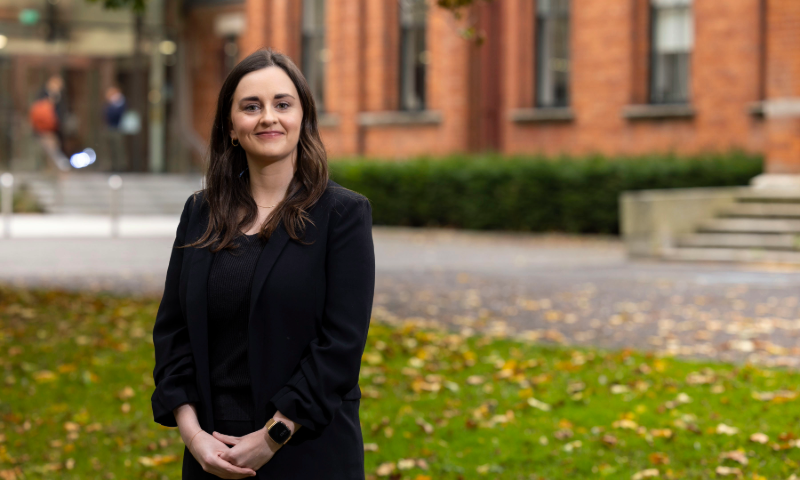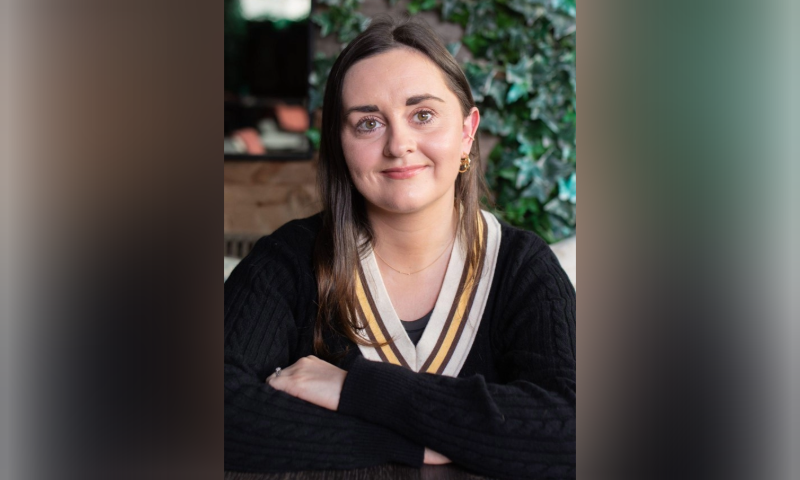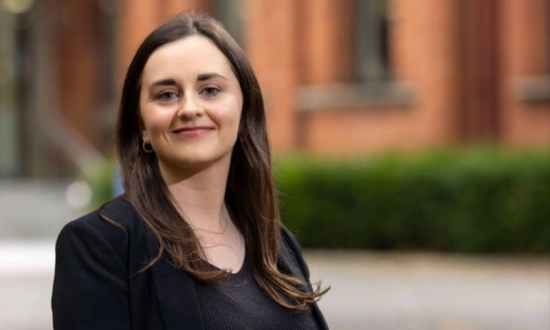Kate Minogue, MBA, MSc is a consultant, business advisor and Chief Product Officer for Frekkel. A seasoned analytics leader and Data Science/AI expert, Kate is passionate about customer-centric product development and the potential to use advances in data and technology for positive impact. In her work in Meta, Kate was at the forefront of industry shifts on privacy-first marketing and consumer technology business models. She combines a unique perspective on strategy, data and the importance of people in both to understand industry problems and opportunities and drive meaningful transformation and results.
Recently, in an exclusive interview with Digital First Magazine, Kate shared her professional trajectory, insights on diversity and inclusion in tech, significant career milestone, her favorite quote, future plans, words of wisdom, and much more. The following excerpts are taken from the interview.
Hi Kate. Tell us about your career path. What experiences have brought you here?
My early career path appeared very intentional. Having studied Mathematics and then Cognitive Science in university I entered a career in Data Science. What I loved about Data and Analytics was the opportunity to solve complex problems and to understand decisions. In hindsight, I see that these two themes have been a common thread throughout my career.
At the beginning, the problems were technical analytics projects and models and the decisions were of customers. Later, when I joined Meta/Facebook, my role involved leading a client-facing team and my perspective shifted to an industry-wide lens. Here, I helped executives leverage data to make critical decisions about budget allocation. I really enjoyed working with dynamic companies in Consumer Technology and Mobile Apps, where each day was different.
As Apple implemented its data privacy changes in 2020/2021, my role evolved further. I transitioned from providing technical and strategic guidance to supporting those same executives through significant industry shifts that affected operations and organisational behaviours. This new challenge allowed me to solve problems from a different angle, focusing on the decision-making processes of employees themselves.
Simultaneously, I pursued an Executive MBA, driven by my interest in the interaction between data teams, organisational dynamics, and the broader industry environment.
All of this has given me an appetite to channel my skills and experience to become a C-level executive that can offer a unique perspective and background and, ultimately, to launch my consulting and advisory offering. My goal is to support companies and executives to enhance their decision-making processes, understanding of how their teams execute strategies and how the behaviors and preferences of customers impact business models.
What was the inspiration behind establishing Frekkel? What is its mission and vision?
Marah Curtin, the CEO and Co-founder, built a successful career in Wealth management through a strong belief and focus on the power of shared knowledge and accessible advice. In recent years, she observed how rapid growth in the skincare industry had led to a lot of noise and confusion for consumers. Many struggle to navigate this overwhelming market and the scientific positioning of products and routines. Marah sought a solution for herself that would cut through individual marketing and product messaging to reveal what truly worked.
Frekkel was born, with a vision to create a world where personalised skincare is accessible to all, simplifying choices, reducing waste, and enhancing consumer confidence for a healthier, happier society. The mission is to revolutionise skincare by providing personalised, effective solutions through AI-driven technology. We will enable individuals to confidently navigate their skin choices, achieving personal goals and optimal skin health.
One of Frekkel’s founding investors and advisors introduced us because Marah wanted to bring in someone with experience in data, AI, and consumer technology. This ensures that Frekkel remains customer-centric, leveraging new technologies to genuinely benefit the users rather than adopting innovations for their own sake.

What are the three major trends do you foresee in your industry in the next 12 months?
Over the next 12 months, I predict that people will become increasingly clear about their expectations from technology both as consumers and in business. They will grow more confident in demanding that these expectations are met, seeking tangible results and practical benefits.
- The notion of “AI for AI’s sake” will face heightened scrutiny, as will the belief that data alone is a silver bullet. People will demand to see real impact and outcomes, refusing to place any technology on a pedestal without questioning its efficacy and value.
- Consumer technology is at a crossroads, with different generations reassessing its role in their lives. The rise in “dumb phone” adoption reflects parents’ efforts to mitigate social media’s impact on their children’s development and reclaim their own time back from their screens. As we continue to explore our interactions with social media and apps, there will be a stronger demand for positive, accountable, and beneficial technology.
- Access to skincare and health information has surged, leading to an appearance of greater scientific literacy. However, this has also resulted in a proliferation of unvetted information and misinformation. People are now seeking verifiable evidence, and learning patterns are shifting towards a more critical and discerning approach.
What are your thoughts on diversity and inclusion in your field? How important is it to have authentic conversations with leaders, professionals, and changemakers to create more acceptance across the globe?
I look at this in two contexts where my work overlaps – Data and AI and Consumer Tech startups and scale ups. For both, diversity and inclusion is a success, and even survival, imperative.
Data teams and products are assumed to be truthful and unbiased by their nature, but that can only be the case if there has been real diversity and sincere inclusion in their design and validation. They can be even more dangerous than no data without because people ASSUME they are unbiased and accurate and are less likely to question their output.
Startups, and Tech in general, suffer greatly from a lack of diversity in founders, technical roles and funding and each of these gaps means we are missing a significant opportunity to build for, and benefit, a larger group.
We need authentic conversations, now more than ever, because many people have grown tired of DEI efforts and loud voices on the other side are seeing that as an opportunity to break through. Continued focus in the area has to be a key strategic priority and ideally one that exists within every other strategic pillar for businesses, or it won’t deliver real change. For that the ugly conversations have to happen with people whose comfort is under threat.
What has been your most career-defining moment that you are proud of?
While conscious that a recency bias could be at play, I have to say launching my Consulting and Advisory business and following the path of fractional C-level appointments rather than stepping into another full- time role.
The day that I launched and shared my website (kate-minogue.com) felt like a big step because rather than quietly continuing my advisory work on the side of my “real job” I put myself out there for the first time as just me, not associated with any employer brand. Wherever my career goes in future I think that decision will have given me a lot in terms of really reflecting on and identifying my own value after over a decade of describing it with job titles and company names.
This moment has also given me the opportunity to gain a variety of experiences with broader scope and responsibility than some roles in more established companies would provide. This has really accelerated my own learning and development in a new way and one that I know will inform future career choices.
If you could have a one-hour meeting with someone famous who is alive, who would it be and why?
If I can only have one person and one hour then I choose Bozoma St. John.
I know it would be a fun hour at the very least but beyond that she exists in so many domains I’m interested in while also authentically standing for values that are important to me.
Her attitude to life, mindset and happiness are so inspiring and the boundaries she sets, publicly, about what deserves her time and energy is really something unseen elsewhere.
Not only that, but she is also completely self-made and has a resume of employers that anyone would be jealous of. I would love to hear how she thinks about choosing and building winning companies, brands and teams.
Finally, she is about to be a Real Housewife of Beverly Hills. All of that and a Bravo star- what more could I ask for?

Is there a particular person you are grateful for who helped get you to where you are?
Warren Buffet said: “The most important decision you’ll ever make has nothing to do with your money or career – it is who you marry” And honestly it is great to hear that from a man because I think it has been the unsaid privilege of many men that their wives were keeping things afloat at home and elsewhere while they were thriving in their careers.
I feel that way about my husband, Alan, he has given me the support in all ways to be able to commit to my career and/or studies at different points in time. Even when that meant a lot of travel or time and focus away. He has been patient and a cheerleader and I don’t take that for granted. It would be hard to identify someone else who has been by my side through so much while I have navigated the ups and downs on the way here.
How do you keep your mind healthy and stay resilient? And how do you motivate your team?
I’d be lying if I didn’t say this was a daily focus for me and I don’t always get it right.
I mentioned Reality TV already so I’d be remiss not to call it out as something I enjoy for just switching my brain off! I also love to start and finish my work day with a walk and am lucky to live right beside the sea so I have the perfect setting for that – rain or shine!
Without strong mental health we can’t be our best in our careers or lives so it is a foundation we should all invest in. I’m a big advocate for Cognitive Behavioural Therapy (CBT) and think everyone can benefit from the tools and frameworks it provides.
With my teams, I always try to instill a sense of perspective. It’s easy to get caught up in the urgency or importance of the task at hand but everything is relative and we can benefit from that reminder often. I also really try to bring humour to every role and interaction – it is the best medicine and has such a positive impact on team culture.
What is your favorite quote?
“Not everything that can be counted counts and not everything that counts can be counted”
Although the original attribution of it is unclear, some say Albert Einstein had it mounted on his wall. I love it because it works on three levels. In the very literal sense for someone who has had roles in Data science, it’s a reminder of the limitations of data. From a leadership and operations perspective it is a warning about the empiricist bias we are all prone to. Finally, on a personal level it highlights the importance of valuing the intangibles in our lives.
Where do you see yourself in the next 5 years?
I want to continue to help businesses thrive by really focusing on the intersection between people, strategy and data. I hope that I can build a portfolio of roles that will allow me to help as many companies as possible and play a part in building some great products while doing things differently.
What advice would you give to anyone starting out on their career in your industry?
In any career I think it is important to define what success looks like for you and understand why you are in the role you are in.
If you are interested In consumer tech, read a lot about the industry and other companies. This is particularly true if you are in a role focused on technical or narrow problems – it’s so important to stay connected to the bigger picture and the consumer landscape.
From early on, make a habit of asking yourself how your work connects to the “why” of your company and its customers, you will be ahead of the pack.






